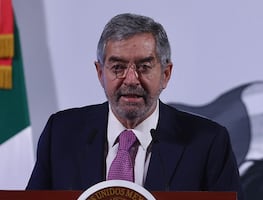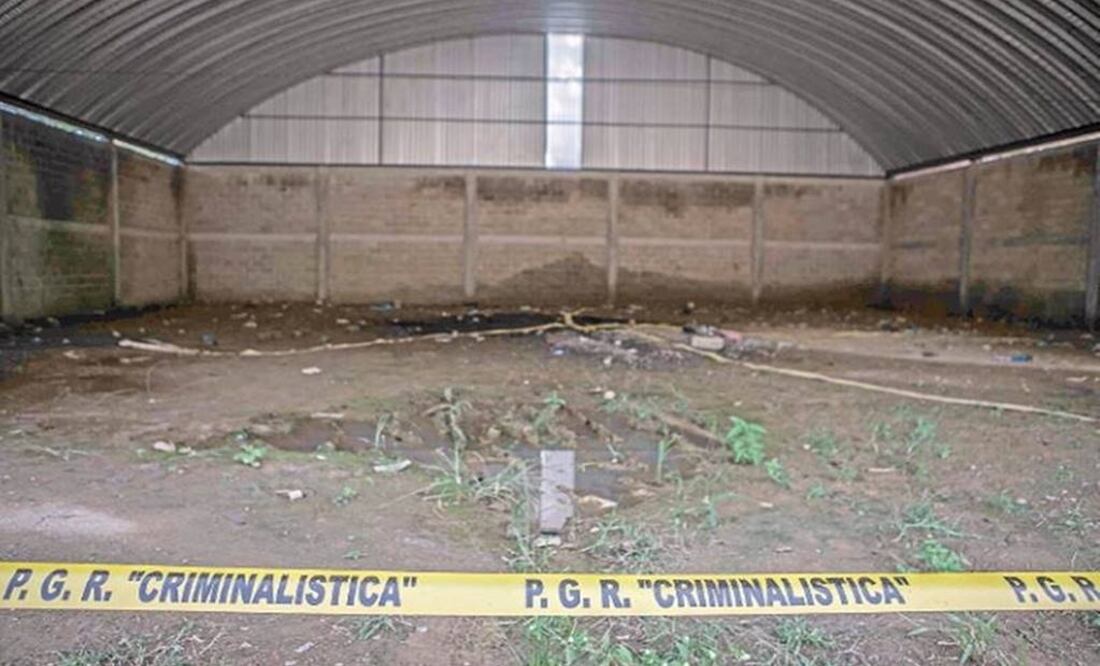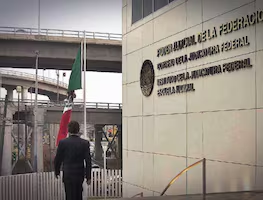Más Información

Trump desata una confrontación interna en México por declarar terroristas a los narcos; Sheinbaum acusa de “entreguismo” a oposición

Avanza repatriación a México de connacionales secuestrados por huitíes; reciben asistencia y protección consular

Canciller De la Fuente dialoga con su homóloga de Canadá, Mélanie Joly; revisan prioridades compartidas del T-MEC 2026
Federal prosecutors announced they will appeal a Mexican judge's decision to dismiss criminal charges against four of seven soldiers charged in the 2014 killing of 22 gang suspects, at least 12 of whom investigators say were shot after they surrendered.
Human rights groups said Tuesday that last week's ruling suggested prosecutors weren't doing their job, and the Miguel Agustín Pro Juárez human rights center said the ruling "does not exonerate the army."
"Three Mexican army soldiers are still on trial for homicide," the center said in a statement. "That doesn't imply that the rest of the suspects didn't commit illegal acts, given that they altered the crime scene and covered up."
The four soldiers had faced charges of "actions improper to the public service," apparently for failing to report or helping cover up the killings. The judge upheld homicide charges against three soldiers who allegedly directly carried out the killings at a grain warehouse in southern Mexico on June 30, 2014.
The Attorney General's Office said it would appeal and present more evidence against the four. All seven have been held at a military base and still face charges in military courts.
Mexico's national human rights commission found in an investigation last year that someone, probably soldiers, not only executed 12 to 15 of the youthful suspects, but also beat some before killing them and broke one suspect's neck. The report also found that someone, probably soldiers, moved the bodies in the warehouse, altered the crime scene and planted guns next to some of the corpses.
Case files say that in at least 10 cases, weapons placed next to bodies did not match the ammunition carried by the dead men and blood stains on clothing indicated the bodies had been moved. "Defensive wounds" suggested at least nine of the dead had tried to ward off bullets by raising their arms, something they would be unlikely to do if they were firing weapons, the files say.
The rights center said that if prosecutors continue to fail to present a solid case, "one of the most serious cases of arbitrary executions in recent history could go unpunished."
Juan Velasquez, a high-profile attorney who has been advising the soldiers' defense, raised questions about the evidence that is said to show there were executions - patterns of tightly clustered bullet marks, splattered with blood, at chest height on the walls.
"It could be that gives the appearance (of an execution) because they were standing against walls, they got shot, the bullets went through the bodies ... and left blood stains on the walls," Velasquez told local media.
He also said that some suspects could have died as a result of the darkness and confusion of the pre-dawn confrontation between troops and suspected gang members. "In the end, it could have been that, in the confrontation, there were two or three (suspects) who weren't armed ... two or three who didn't resist. But it was dark," he said.
The biggest criticism following the judge's ruling last week has been against one of the strongest elements of the case - the testimony of two of the three survivors, women who were at the warehouse with the gang of suspects when the shootings occurred, but who were not killed because they made soldiers believe they were kidnap victims.
The two witnesses interviewed said most of the gang surrendered after a brief exchange of gunfire and walked out of the warehouse with their hands behind their heads. They were then led back into the warehouse, and shots rang out, the women said.
Velasquez said the main witness had changed her story - something she has acknowledged from the start, claiming she was threatened by investigators to change her story to match the army's version. Another witness said she was tortured by investigators and in July authorities filed charges against seven state police officers accused of torturing all three witnesses.







